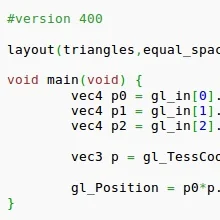Khronos Releases SYCL 2020 For C++ Heterogeneous Parallel Programming

SYCL 2020 as the successor to the SYCL 1.2.x standard adds unified shared memory (USM) support, parallel reductions, work group and subgroup algorithm support, expanded interoperability, and SYCL atomic operations that more closely behave like C++ atomics. There are more than 40 new features of SYCL 2020 in full to enhance the programming experience from desktop and mobile through HPC deployments with this programming model based on C++.
SYCL remains one of the key pieces of Intel's oneAPI effort and has seen support via ComputeCpp and other open-source efforts.
SYCL 2020 is based on C++17 and does retain backwards compatibility with SYCL 1.2.1. More details on the SYCL 2020 release via Khronos.org.
1 Comment

